▶ Watch Video: Biden returns from France as Trump campaigns following conviction
Among all the factors on voters’ minds this election, former President Donald Trump’s guilty verdict pales in comparison to issues like the economy, inflation, and the border — all items on which Trump maintains advantages. As such, the verdict has not dramatically reshaped the race.
But what we do see is a few more Joe Biden voters activated out of opposition to Trump. His vote has become increasingly centered around anti-Trump sentiment, more so than affinity for Mr. Biden himself. Today, most of Mr. Biden’s voters say their main rationale is opposing Trump, and that’s up from March.
Whether that dynamic is enough to sustain Mr. Biden looms as one of the central questions of this campaign — a contest that today is essentially tied in likely voter preference, both nationally and across the collective battleground states.
Among Trump’s voters, the verdict is a wash. A few say it’s a reason to show him support, a few say they’re backing him despite it, and the great bulk of them say it doesn’t matter either way.
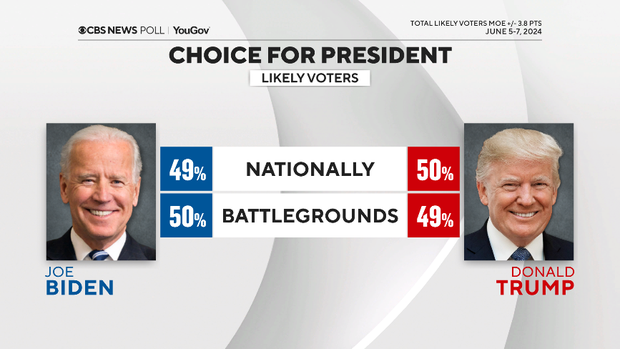
A majority say Trump’s conviction is not a factor in their vote decision. In fact, the trial ranks much lower as a factor when considered on its own than every other issue tested.
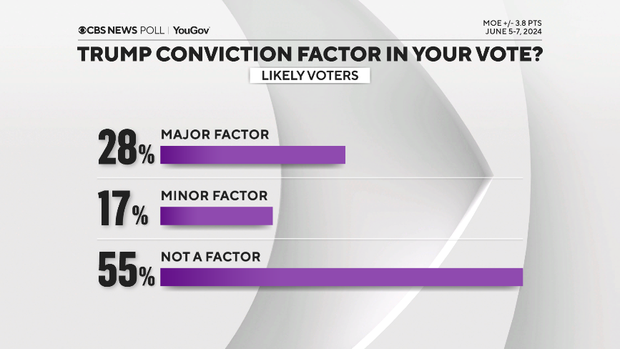
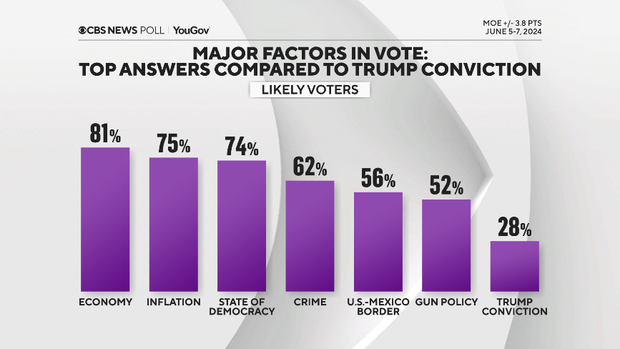
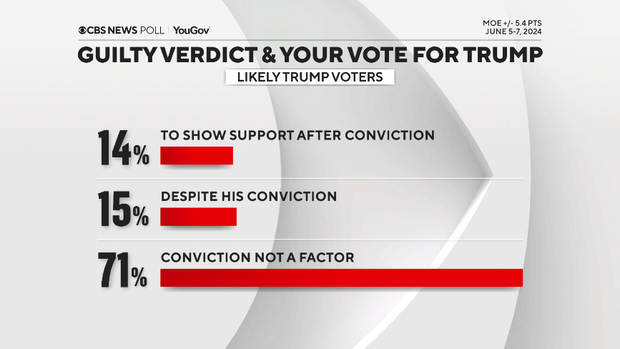
Most of Mr. Biden’s voters now say their main rationale is to oppose Trump, not because they like Mr. Biden — an increase in this rationale since March.
(Mr. Biden capitalized on this kind of sentiment in 2020 too, as substantial numbers expressed it in many battleground states that year.)
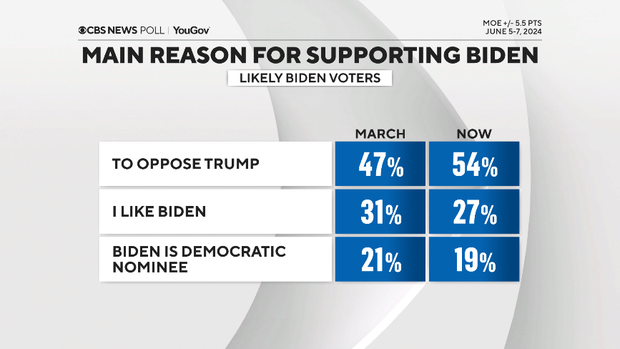
Moreover, we see this dynamic again in how people frame their vote decision, along the lines of whether this election is a referendum or a choice.
When people say this election is just about their view on Trump, most vote for Mr. Biden.
However, when people instead see this race as a judgment just on Mr. Biden, they vote for Trump.
And when they’re framing it as a comparison between the two, slightly more are voting for Trump than Mr. Biden.
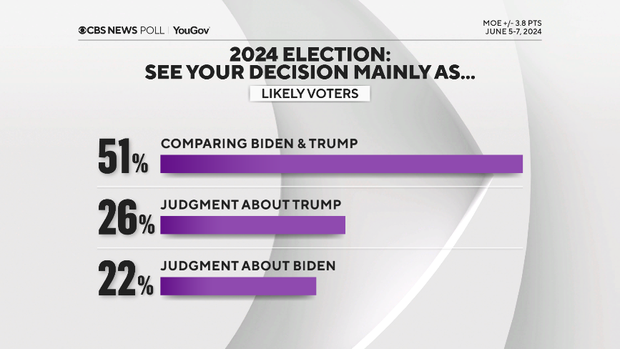
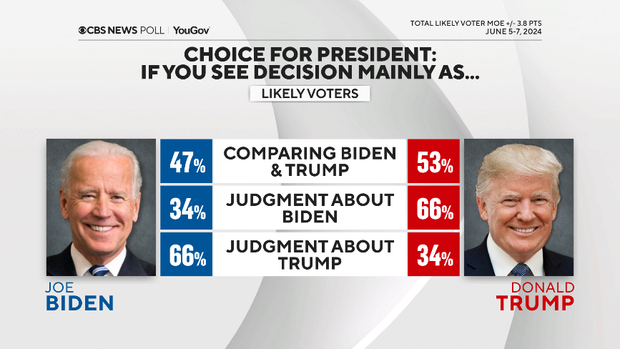
Here’s why that direct comparison right now favors Trump:
Trump outpaces Mr. Biden on a range of qualities like being seen as effective, tough, energetic and — more narrowly — competent. Also, more think Trump has a vision of where he wants to lead the country.
Mr. Biden does better on personal likability and being viewed as compassionate. But that likability gap does not match vote preferences, because a lot of people who dislike Trump personally are voting for Trump anyway.
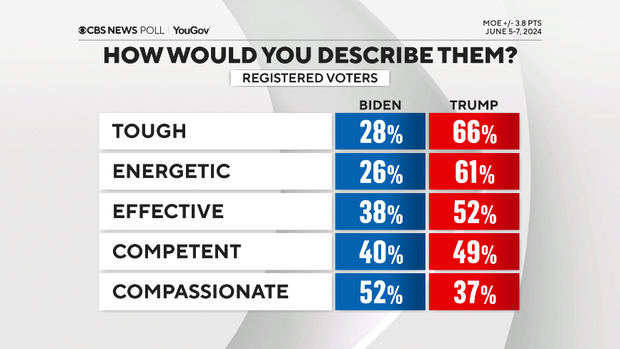
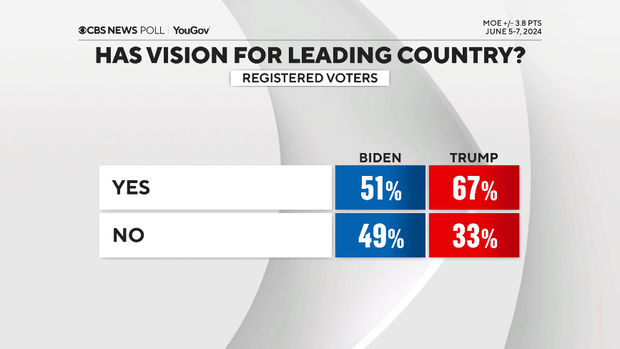
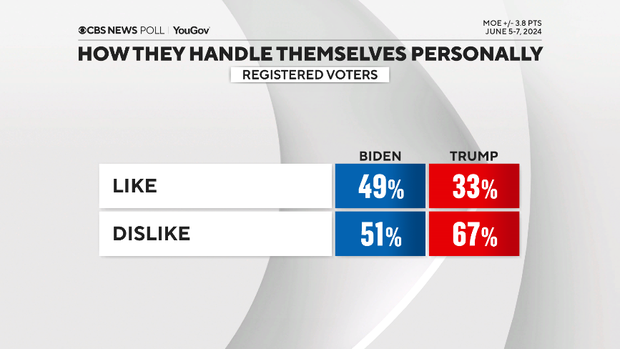
And here’s what partially insulates Trump after the trial verdict: so many of his backers, and Republican base, have seen the charges as not serious and the trial as politically motivated.
In fact, most Republicans believe that the prosecution in New York was brought on not by decisions by New York prosecutors, but at the direction of the Biden administration. Looking forward, if he’s elected, that view may have implications for what they’d want Trump to do in turn. Half of Republicans want Trump to get revenge against his political opponents by investigating and bringing criminal charges against them — a number that rises among MAGA Republicans.
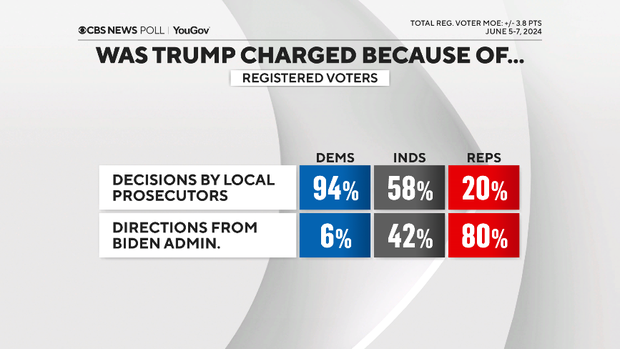
The border and immigration
There’s broad support for Mr. Biden’s recent executive order dealing with the border, including from most Republicans, but despite that, voters who place a high priority on the border are backing Trump by a large margin.
Voters still tend to think migrant crossings will go down more under Trump.
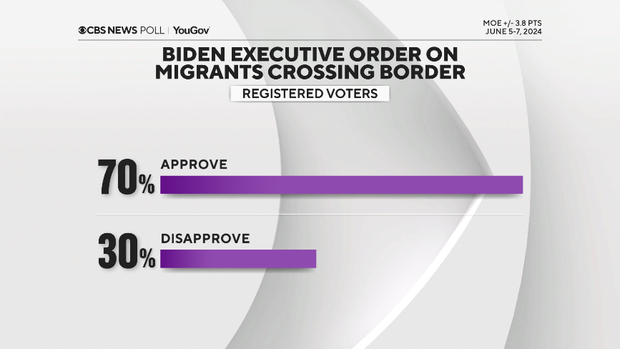
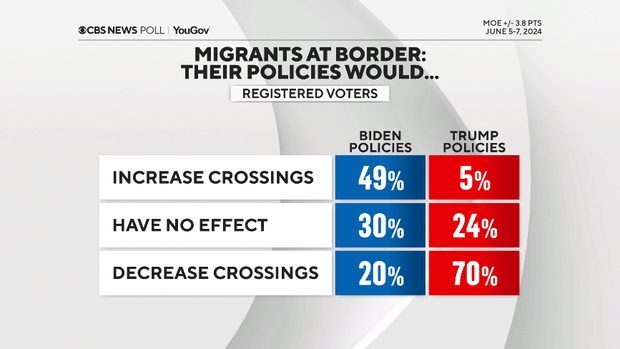
Meanwhile, Trump has talked about the actions he would take toward immigration if elected to a second term, including deportation efforts.
A nearly six in 10 majority of voters say they would favor, in principle, a new government program to deport all undocumented immigrants living in the U.S. illegally.
(That isn’t purely partisan, it includes a third of Democrats. It rises to nine in 10 Republicans.)
A similarly sized majority would have local law enforcement try to identify those living in the U.S. illegally, and just under half support the idea of setting up large government detention centers to sort out which people ought to be deported.
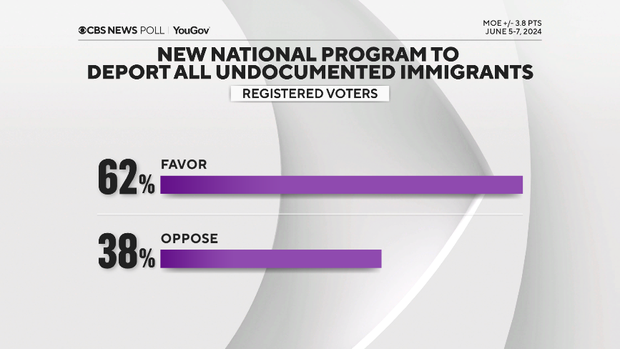
Key voting groups and rationales: Who is backing who?
Views of the national economy are more negative today than they were in March, and voters’ financial concerns continue to lead to more Trump support. This, despite positive macro numbers in the jobs report and stock market.
But inflation — likely a proxy term for still-high prices — continues to affect voters.
Trump is up more than 2 to 1 among those who say higher prices have been a hardship. And Trump leads Mr. Biden big among those who say the economy is a major factor in their vote.
More continue to think they will be financially better off with Trump in office than with Mr. Biden.
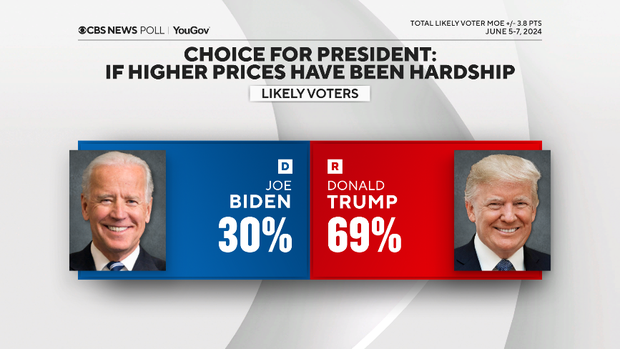
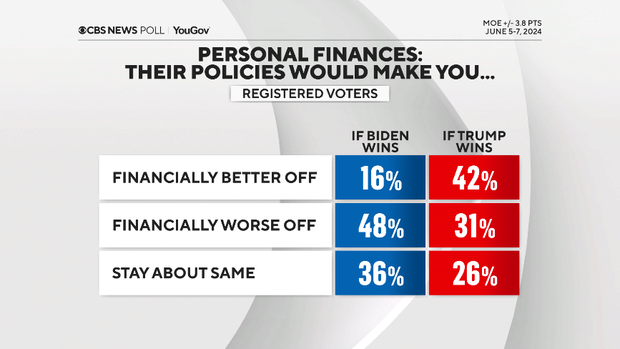
Nationally, Mr. Biden’s support from some key parts of his base have inched up a bit from March, including women. More women now call abortion a major factor in their vote than they did in March and those that do go big for Mr. Biden.
The president’s support among Black voters continues to lag behind his 2020 performance, but it has improved since the spring. More Black voters now say he fights for people like them than said so in March.
Mr. Biden has improved a bit with independents compared to our last national poll in early March. (Given that time frame, it’s not precisely clear when that shift may have occurred.) That said, there is some anti-Trump sentiment among the independents now backing Mr. Biden. A larger majority of them are doing so now to oppose Trump.
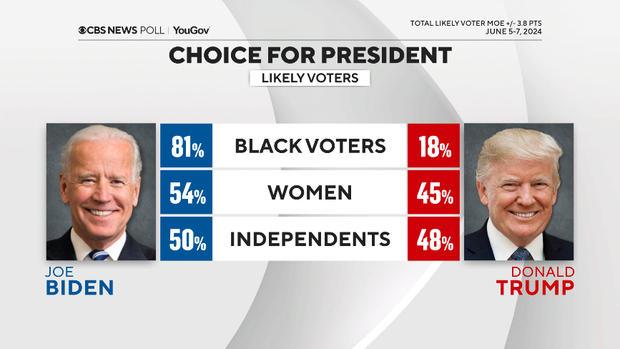
But Mr. Biden does not have a meaningful advantage among Hispanics, a group he won handily in 2020. More Hispanic voters think they will be financially better off if Trump wins than if Mr. Biden does.
Trump continues to do well with White voters without a college degree and with older voters, groups that backed him in 2016 and 2020. And despite speculation about the “anti-Trump” vote in the GOP primaries, more than nine in 10 Republicans are backing Trump, similar to the number of Democrats who are backing Mr. Biden.
Much of these same patterns play out across the battleground states.
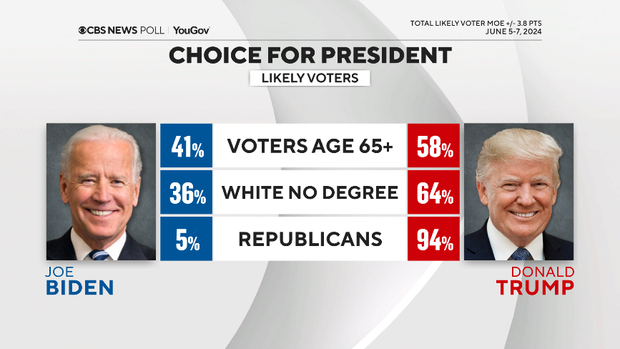
Nationally, Republicans have a turnout advantage helping lift Trump, but in the battleground states, Democrats and Republicans are about equally likely to say they’ll definitely vote, perhaps due to campaigns trying to activate their voters there.
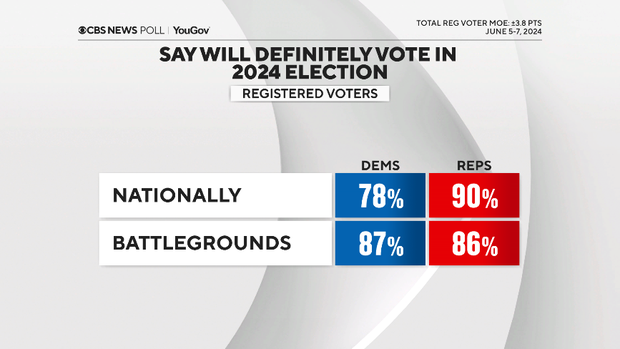
This CBS News/YouGov survey was conducted with a nationally representative sample of 2,063 U.S. adult residents interviewed between June 5-7, 2024. The data includes an oversample in Arizona, Georgia, Michigan, Nevada, North Carolina, Pennsylvania, and Wisconsin. The sample was weighted by gender, age, race, and education, based on the U.S. Census American Community Survey and Current Population Survey, as well as past vote. The margin of error is ±3.2 points among all adults and ±3.8 points among registered voters.







